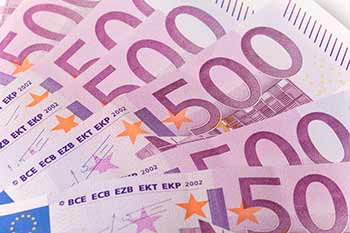Euro (EUR) Hawkish on Manufacturing PMIs as Sterling (GBP) Weakens with Deteriorated Construction PMI Figure
Significant drops on the Athens stock market, with stocks falling by up to 30% in some sectors, have failed to put a particular dampener on the common currency (EUR). The Eurozone’s final Manufacturing PMI figures helped bolster the Euro yesterday and send the GBP/EUR exchange rate trending down to a low of 1.4204.
Although the Pound (GBP) had recovered ground through the afternoon, today’s below-forecast figure for the UK’s Construction PMI saw the GBP/EUR pairing shedding further value to plunge to 1.4194.
Currently the GBP/EUR exchange rate remains in the region of 1.4234.
Earlier…
Athens Stock Market Resumes Trading Today, Anticipated Falls may Prompt Softening of the Euro (EUR)
This morning will finally see the reopening of the Greek stock market for the first time in five weeks. With an immediate decline in stock values expected once trading resumes this could potentially undercut the recent rally of the Euro and give the GBP/EUR exchange rate another good boost ahead of this week’s upcoming data releases.
At time of writing the Pound to Euro (GBP/EUR) exchange rate was trending narrowly in the range of 1.4239.
The return of Greek troubles could negatively impact the common currency (EUR) in the coming week as the Pound (GBP) looks to rally on the UK PMIs and Inflation Report.
Euro Rallied Strongly with Inflation Rate before Weekend to Push the GBP/EUR Pairing Lower
The Euro recovered some of its lost strength as a combination of positive German Retail Sales data and an above-forecast core Inflation Rate for the Eurozone sent the GBP/EUR exchange rate trending steadily downwards on Friday. Curtailing the general increase the pairing had been seeing during the earlier week this brought GBP/EUR to a low of 1.4177. Going into the weekend the Pound is unlikely to see any particular rally as the UK awaits further data releases.
PMI Data Set to Shift Pound (GBP), Growth Could Boost GBP/EUR Exchange Rate Back Towards Fresh Eight-Year Highs
Movement should definitely be anticipated once the week begins and the UK’s PMIs for July begin to emerge. Of particular interest will be the Manufacturing and Services figures, with growth in either sector capable of providing another good boost to Sterling. An above-target manufacturing output would send an undeniably powerful signal of economic health in the midst of the general global downturn. As the service sector is the nation’s biggest, however, any shortfall there is going to be a definite cause for concern, and could prompt pundits to move away from the Pound.
Although Wednesday will see the Bank of England (BoE) Rate Decision the lack of meeting minutes at this stage ensures that this event will have a negligible impact on exchange rates. Due the same day, however, the Inflation Report is going to have a far greater impact on the Pound. Setting out a detailed economic analysis alongside inflation projections, which will offer insight into the current health of the nation’s economy, the report offers clues to future decisions of the Monetary Policy Committee (MPC). A projected improvement is very likely to influence the MPC’s next meeting and any increased prospect of an interest rate rise seems sure to rally Sterling, potentially pushing the GBP/EUR exchange rate up to new highs.
Rumbles in Athens Bode Badly for Common Currency (EUR), More Turmoil Potentially on the Horizon
The Eurozone, on the other hand, is expecting relatively little in the way of data in the coming days. Year-on-year Retail Sales are likely to be a cause of movement for the common currency, especially if they should fall short of the expected increase of 0.3% following the previous month’s 0.2% gain. Lack of recovery will not spell well for the Euro and may send it slipping still further against the Pound.
However, as the deadline draws nearer for Greece’s next repayment to creditors, 3.4 billion Euros to the European Central Bank (ECB) on the 20th August, the crisis surrounding the Hellenic nation seems to be far from over. With the IMF taking a hard line in negotiations, refusing to sign up to the third bailout deal without firmer agreements from all parties, a potential hold-up may well see the Euro’s value dipping. Increased uncertainty and the threat of further political turmoil is likely to damage investor’s opinion of the common currency as its long-term future returns increasingly to a state of doubt.
Current GBP, EUR Exchange Rates
At time of writing the GBP/EUR exchange rate was trending down around the 1.4181 mark, while EUR/GBP was making gains in the region of 0.7050.



